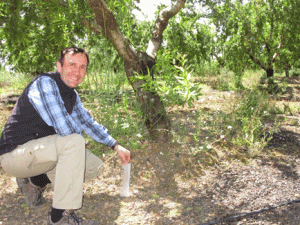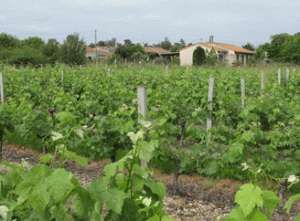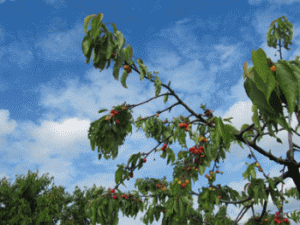
EuroPruning:
Branching out to new bioenergy supplies
The European Union currently creates more than 25 million tonnes of agricultural wood prunings each year, but only a marginal percentage is used as solid biofuel. The EuroPruning project seeks to turn prunings into a valuable fuel source by developing solutions for their harvesting, transportation and storage that will create growth in the European biofuels market.
Agricultural residues are a potential source of renewable energy. There is already an implemented and developed logistic chain for the use of straw residues from annual crops. A high potential is also to be found in pruning residues from fruit tree / plant branches and twigs, but prunings rest to be a largely unused source of bioenergy.

Erosion at the Zaragoza site (Spain).
The main objective of EuroPruning, therefore, is to develop the logistic chain for an economically viable and sustainable use of woody residues from the tree cuttings. In this course, machines for automated pruning and collection are developed. The transport logistics and energetic end uses are optimized. Ecological parameters are used to secure the long term, sustainable use of the pruning biomass.
The Europruning activities along the value-chain are schematically shown in Figure 1. You can get further information on the  Poster
Poster
Apart from the theoretical research, the findings and developments are tested on three demonstration sites in Spain (Zaragoza region), France (Médoc) and Germany (Brandenburg region). On these, the machinery, logistics, energetic use and ecological studies are implemented in real world cases.
The EuroPruning consortium consists of 17 partners from 7 EC-countries, of which 6 are research institutes, 8 small and medium enterprises (SME) and 3 other institutions. The total budget is 4.6 million €.

Figure 1: Europruning activities along the value-chain (please click on the figure to enlarge).

Vineyards at the Médoc site (France).

Cherries at the Brandenburg site (Germany)
Contribution of TerrAquat:
TerrAquat consults the project partners within the consortium on agricultural and ecological issues. TerrAquat conducts the ecological field studies on the demonstration sites together with the Leibniz Institute for Agricultural Engineering Potsdam-Bornim (ATB).
TerrAquat leads the choice of the study areas in the demonstration areas. The fruit cultures include peach and almond (Zaragoza), vineyards (Médoc) and cherries and apples (Brandenburg). We implement measurements of ecological parameters like nitrate leaching and erosion depending on regional and management particularities. From the results, TerrAquat will produce a report on practical recommendations for local farmers to ensure environmentally sound use of the prunings in different ecological settings. Overall, it will support the EuroPruning project to come to a sustainable use of woody biomass from prunings.
EuroPruning has received funding from the European Union’s Seventh Programme for research, technological development and demonstration under grant agreement No. 312078.



